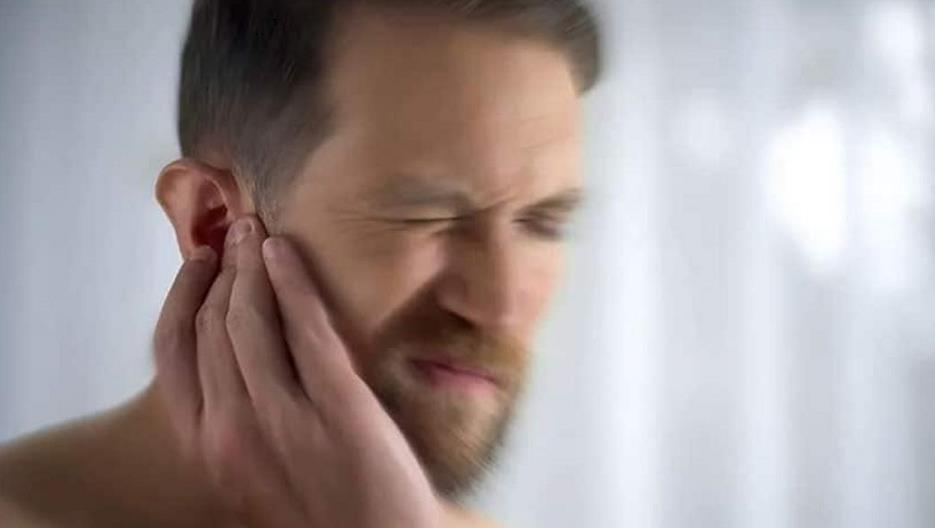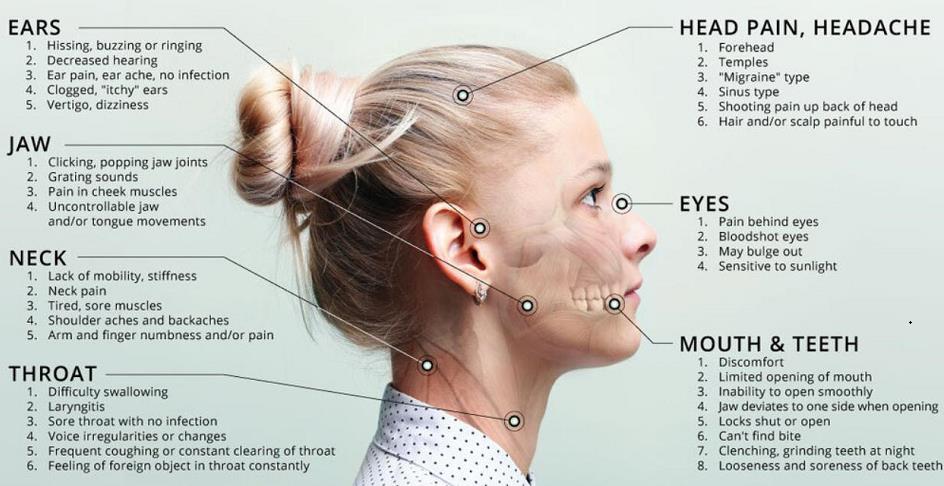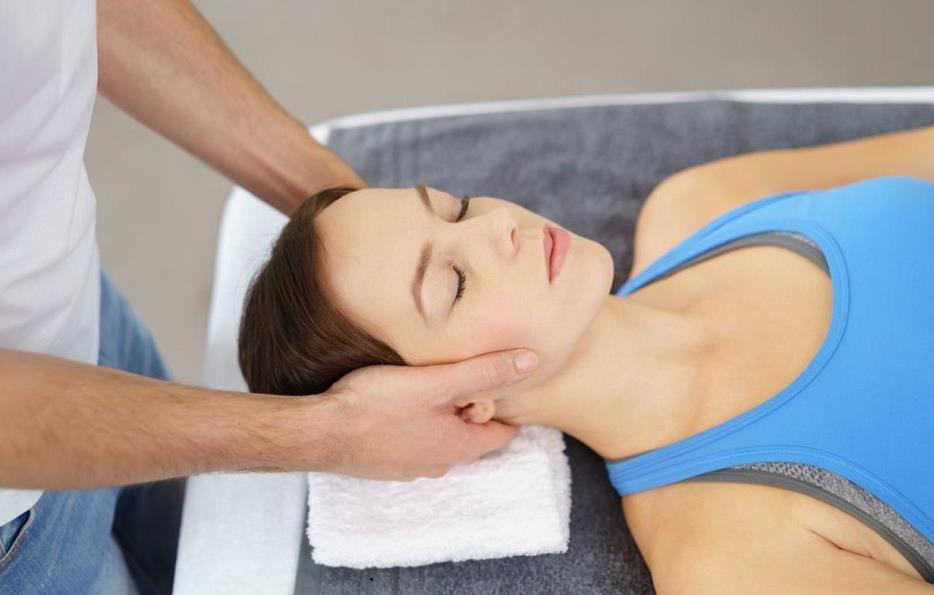Earache is quite tricky to figure out. Many people have actually gone from one specialist to another looking for answers. When this occurs, the culprit behind the pain is in your jaw. It is called Temporomandibular Joint syndrome or TMJ.
TMJ ear fullness, ear pain, and hearing clicking or popping sound when moving the jaw are some of the most common symptoms. But what is TMJ ear fullness? And what causes it?
Understanding TMJ
There are several muscles and nerves that are connected together in your jaw and neck area. They are often lumped in a specific area. However, when one of these joints and muscles are not functioning properly, it affects the function for the rest of the connected joints and muscles.
This explains why you might feel pain in your ears, jaw, or neck when you have TMJ disorder.
The Anatomy of the Jaw Joint
TMJ syndrome, also referred to as temporomandibular disorder or TMD, is pain in the jaw joint which can be caused by multiple factors. This joint is found next to the ear and connects the lower jaw (mandible) to the skull (temporal bone). Due to the proximity of its location, any problems in this joint can cause symptoms to manifest like headache, earache, jaw pain, and neck pain. One can have TMJ on one side or both at the same time.
Muscles involved in chewing, talking, and grinding open and close the mouth. These muscles must move in unison to allow you to chew, talk, and yawn. The TMJ, which controls the jaw joint, has two movements, hinge and rotation (opening and closing) and gliding (opens the mouth wider).
You can actually feel these movements by placing your fingers in the soft area next to your ears when opening your mouth. To keep a smooth movement, there’s a cartilage disk that sits between the lower jaw and the skull. This cartilage absorbs shock to the joint from movements. Chewing hard, for example, generates a strong force. The disk distributes this force all over the joint.
Other Symptoms of TMJ Fullness
There are a variety of other symptoms associated with TMJ disorder. These symptoms can include some or all of the following:
- Ear pain
- Clicking or popping sound when moving the jaw
- Muffled hearing (reduced hearing)
- Tinnitus (ringing)
- Swelling on the affected area of the mouth or face
- Lock jaw or jaw may not fully open
Oftentimes, TMJ is accompanied with other symptoms such as, dizziness, headache, difficulty chewing and swallowing, jaw pain, facial pain, neck and shoulder stiffness. In some cases, it can even lead to nausea and vomiting.
The level of hearing loss or muffled hearing depends on the severity of the problem. Those who experience the most pain and jaw stiffness usually have hearing problems.
Causes of TMJ Ear Fullness
While the exact cause for TMJ is still unclear, the pressure and inflammation caused by various medical conditions can severely affect the muscles and nerves around the area and lead to TMJ. This could be caused by trauma, bad oral habits, wear and tear, and aging. Those who experience TMJ ear fullness, in particular, describe their condition as either stuffiness or increased ear pressure.
Other common causes include:
- Dental problems (misaligned bite, bruxism or teeth grinding, clenching)
- Degenerative conditions (osteoarthritis, rheumatoid arthritis)
- Injury to the head or neck
- Tension and chronic stress
While some ear fullness may be diagnosed and treated by an ear, nose, and throat (ENT) doctor, some cases where there are no obstructions or inflammations are attributed to TMJ.
Diagnosis
If you regularly experience tinnitus, ear fullness, or hearing loss, without any signs of infection or any ear-related problem, then your doctor may suspect a TMJ syndrome.
They can confirm their diagnosis through a physical exam and medical history evaluation. Doctors will check the jaw and look for signs of TMJ and common symptoms, such as clicking or popping sound, pain, and stiffness. They will place a slight pressure by pressing the affected side of the face gently as you move your jaw by opening and closing your mouth. They will also take note of how wide you can comfortably move and open your mouth. The normal range is at least 4 cm.
To confirm the diagnosis, doctors and dentists will usually recommend panoramic X-ray. They will use the X-ray to examine not just the TMJ, but also the jaws and teeth to make sure there are no other underlying issues that may be causing the symptoms.
Treatment Options
The good news is TMJ ear fullness is treatable. A good treatment course will not only relieve pain and stiffness, but also the ear-related symptoms like hearing loss.
Treatment depends on the nature of the problem. Muscle relaxants and pain relievers are used to manage the pain. In most cases, patients are prescribed with mouth guards or splints to help their jaw relax as they recover.
Another effective course of treatment is physical therapy, which helps strengthen muscles around the jaw.
In rare cases, oral and maxillofacial surgery may be needed to repair the damage in the TMJ.




























